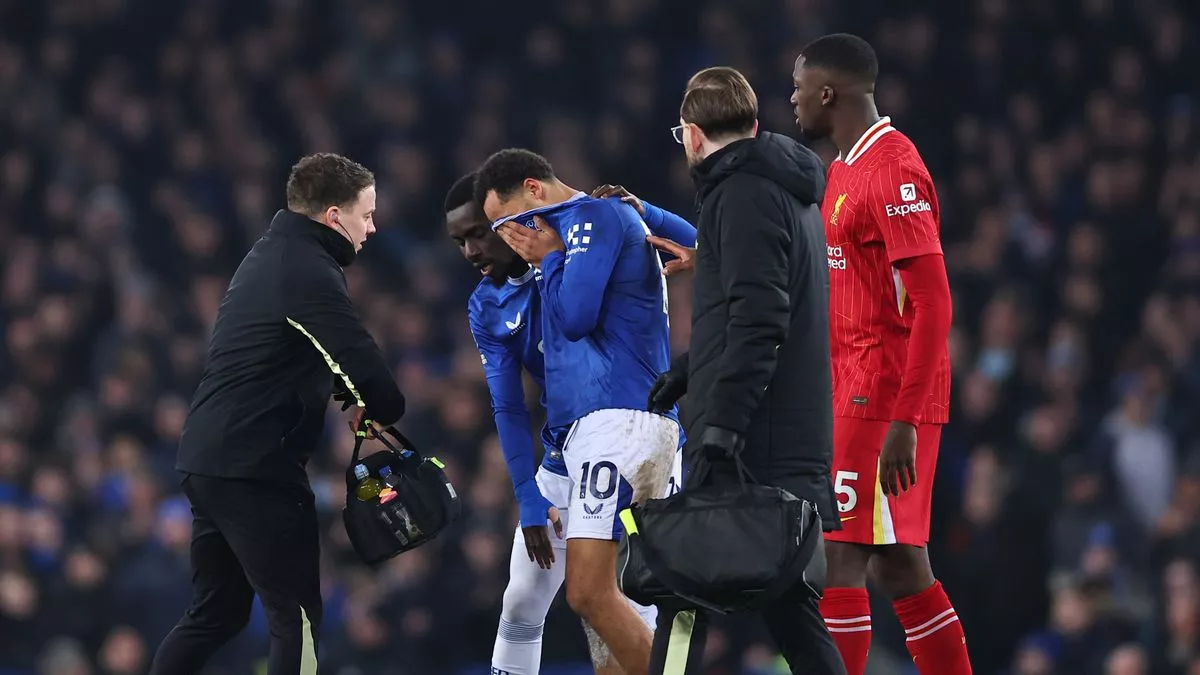ILIMAN NDIAYE POSTS EMOTIONAL STATEMENT AFTER MERSEYSIDE DERBY INJURY
Everton midfielder Iliman Ndiaye has taken to social media to post an emotional statement after suffering an injury in the Merseyside derby. The 24-year-old was forced off the pitch in the first half of the match, and initial reports suggest that he could be out of action for 3-4 weeks.
However, Ndiaye has moved to reassure his fans and teammates that he is determined to return to action as soon as possible. In a heartfelt post on Instagram, Ndiaye wrote: “I want to thank everyone for their messages of support and well wishes. I’m gutted to have picked up an injury in the derby, but I’m already focused on my recovery and getting back out onto the pitch as soon as possible.”
Ndiaye’s statement is a testament to his dedication and commitment to his team. Despite the setback, he remains optimistic and is eager to rejoin his teammates in the near future.
A WORRYING CLAIM
According to a source close to the club, Ndiaye’s injury could keep him out of action for up to 4 weeks. The source revealed that the midfielder suffered a grade 2 hamstring strain, which will require a period of rest and rehabilitation before he can return to training.
However, Ndiaye is determined to defy the odds and return to action sooner rather than later. In his statement, he wrote: “I know the doctors and medical staff have said 3-4 weeks, but I’m willing to do everything in my power to get back out there sooner. I’ll be working tirelessly in the gym and on the training pitch to ensure that I’m ready to go as soon as possible.”
A CALL FOR SUPPORT
Ndiaye has also called on the fans to send their best wishes and support during his recovery period. He wrote: “I’d love it if you could all send me your best wishes and messages of support. It means the world to me to know that I have the backing of the fans, and it will give me the motivation I need to push through the tough times ahead.”
A LEADER ON AND OFF THE PITCH
Ndiaye’s statement is a testament to his leadership qualities both on and off the pitch. Despite the setback, he remains focused and determined, and his positive attitude is sure to inspire his teammates and fans alike.
Everton manager David Moyes was quick to praise Ndiaye’s attitude and commitment, saying: “Iliman is a top player and an even better person. He’s got a great attitude and is always willing to put in the hard work. We’ll miss him on the pitch, but we know he’ll be back sooner rather than later.”
CONCLUSION
Iliman Ndiaye’s emotional statement has sent a clear message to his fans and teammates: he is determined to return to action as soon as possible and will stop at nothing to achieve his goal. Despite the worrying claim that he could be out for up to 4 weeks, Ndiaye remains optimistic and is already focused on his recovery.
As he embarks on the road to recovery, Ndiaye can take comfort in the knowledge that he has the full support of his fans and teammates. With his positive attitude and determination, there’s no doubt that he’ll be back on the pitch sooner rather than later, ready to inspire his team to victory.










